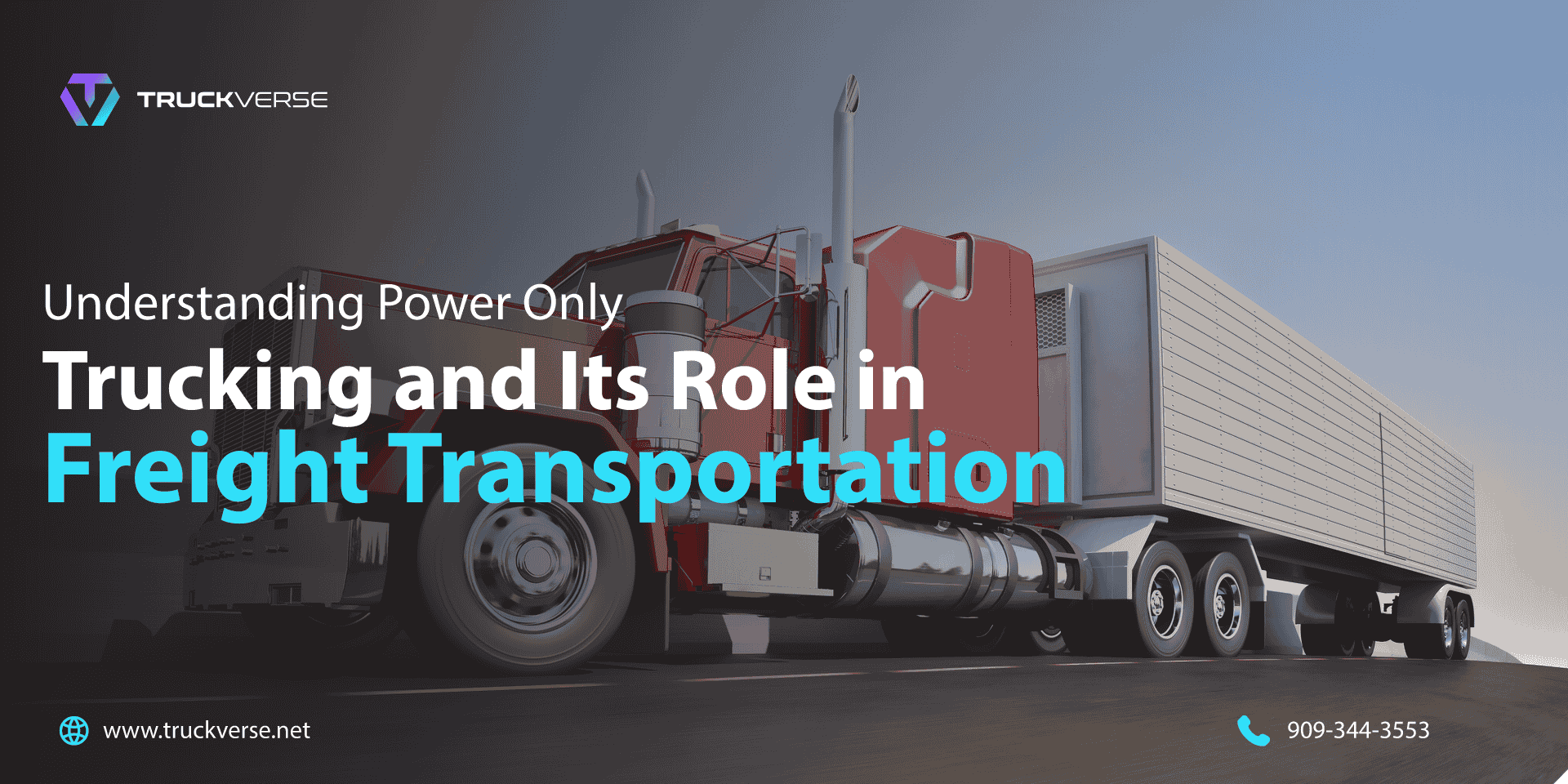In today’s fast-paced logistics industry, flexibility and cost-efficiency are more than just advantages—they’re necessities. As freight demands shift and supply chain expectations evolve, many shippers are seeking transportation models that allow for adaptability without sacrificing reliability. One such model that’s rapidly gaining popularity is power only trucking.
Whether you’re a shipper looking to move trailers efficiently or a carrier wanting to expand your services, understanding how power only trucking works—and how it fits into the broader landscape of freight transportation is key.
What Is Power Only Trucking?
At its core, power only trucking refers to a service where a trucking company provides just the tractor “power” and a driver, while the trailer is supplied by the shipper. This setup differs from traditional full-service freight, where the carrier provides both the tractor and trailer. In a power only setup, the shipper owns or leases the trailer but needs a reliable carrier to haul it.
This model has become particularly useful for companies that manage their own trailers but lack the internal resources or personnel to haul them over long distances.
How Power Only Trucking Services Work
Power only trucking services are incredibly flexible. They can accommodate a wide variety of trailer types, including dry vans, refrigerated trailers, flatbeds, and tankers. Here’s a simple breakdown of how it typically works:
- The shipper provides the trailer, often pre-loaded with goods.
- The power only carrier supplies the tractor and driver.
- The driver hooks up to the trailer and transports it to its destination.
- The trailer may be dropped off (drop and hook) or unloaded and returned, depending on the agreement.
This allows companies to keep freight moving efficiently without overinvesting in a fleet of tractors and drivers.
The Role of Power Only Carriers
Power only carriers are essential to this logistics strategy. These are carriers that specialize in providing the “power unit” alone, rather than full truckload services. Because they don’t manage the trailers, they can often operate with lower overhead and greater scheduling flexibility.
Carriers that focus on power only loads benefit from faster turnaround times, minimal dwell time, and the ability to serve multiple clients who have different trailer requirements. For shippers, this means access to a flexible, responsive transportation partner without long-term commitment.
Why More Businesses Are Turning to Power Only Truck Services
With the rise in e-commerce, seasonal shipping spikes, and ongoing driver shortages, shippers are constantly on the lookout for adaptable transportation solutions. That’s why it’s no surprise that more businesses are asking, “Why more businesses are turning to power only truck services?”
The answer is simple: this model reduces operational bottlenecks, keeps goods moving, and provides more control over fleet assets. Businesses that own their trailers but don’t want the cost or complexity of maintaining tractors and employing drivers are turning to power only trucking services for a reliable alternative.
Benefits of Power Only Trucking
Power only trucking offers a wide range of benefits for both shippers and carriers:
For Shippers:
- Scalability: Quickly adapt to demand without buying tractors or hiring drivers.
- Cost Efficiency: Lower overhead by outsourcing only the transportation power needed.
- Asset Utilization: Keep trailers in use and reduce idle time.
- Faster Turnaround: Drop-and-hook arrangements save time at loading docks.
For Carriers:
- Simplicity – Focus on power and driver management without maintaining trailers.
- Versatility – Serve a wide range of industries with various trailer types.
- Increased Volume – With less downtime, carriers can take on more power only loads.
Real-World Applications of Power Only Trucking
From large retailers to construction suppliers and food distributors, a variety of industries rely on power only trucking services to maintain supply chain efficiency. For example:
- Retailers with pre-loaded trailers at distribution centers often need fast transport to stores.
- Manufacturers with consistent trailer fleets use power only carriers to ensure continuous delivery.
- Event and trade show logistics depend on flexible pickup and drop-off options that power only models provide.
Finding Power Only Truck Services Near Me
If you’re a shipper wondering how to tap into this model, the search often starts locally. Typing in “power only truck services near me” can connect you with nearby carriers ready to provide just the solution you need. Working with local providers offers the added advantage of faster response times and more personalized service.
When selecting a power only partner, be sure to ask about:
- Their experience with your trailer type
- Insurance and safety records
- Driver availability and flexibility
- Fleet size and geographic coverage
Choosing the right carrier can make a major difference in performance and cost-effectiveness.
Final Thoughts
Whether you’re a shipper trying to optimize your trailer usage or a carrier looking to expand into high-demand services, power only trucking presents a smart, scalable solution.
And with more businesses actively searching for power only truck services near me, it’s clear this model is not just a trend—it’s a key component of modern freight strategy.
Frequently Asked Questions (FAQs)
1. What does power only mean in trucking?
Power only in trucking refers to a transportation model where only the tractor and driver are provided by the carrier, while the shipper supplies the trailer. It’s commonly used by businesses that own their own trailers but need a carrier to haul them.
2. Who needs power only trucking services?
Power only trucking services are ideal for shippers with pre-loaded trailers, companies with dedicated trailer fleets, or businesses with seasonal spikes in demand. It’s also widely used in industries like retail, manufacturing, construction, and live events.
3. Are power only loads more cost-effective?
Yes, in many cases. Since the shipper provides the trailer, power only loads reduce the cost for both equipment and loading time. It allows shippers to pay only for the hauling service, making it a budget-friendly choice for many operations.
4. How can I find power only truck services near me?
To find power only truck services near me, search online for local carriers that offer power only options. Look for reviews, ask about trailer compatibility, and make sure they’re insured and compliant with regulations.
5. What are the benefits of using power only carriers?
Power only carriers provide greater flexibility, shorter wait times at loading docks, and cost savings on equipment. They also allow shippers to scale their operations without purchasing or managing tractors and drivers.




